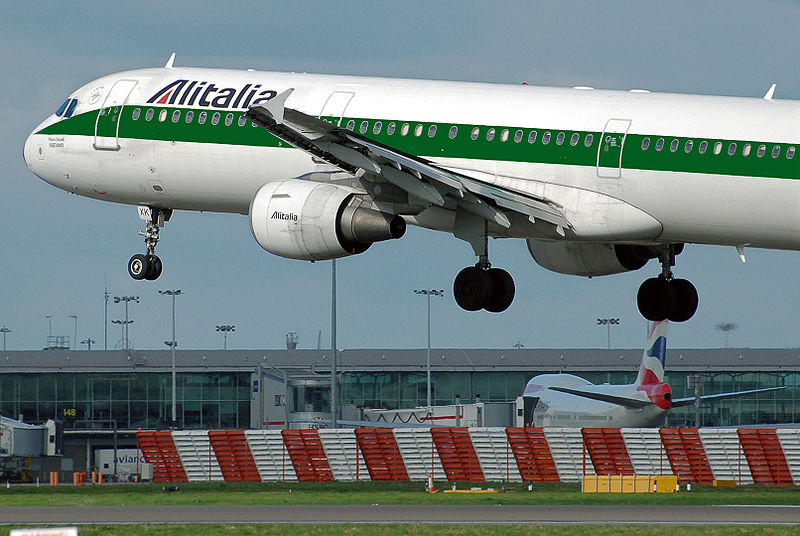President and CEO of Etihad Airways (owns 49% of Alitalia) James Hogan expressed "deep disappointment" with the referendum’s outcome. "The agreement reached with the trade unions was a result of the work of their leaders, the company's management, and the Italian government, and was called upon to ensure the future of Alitalia". The refusal at the referendum is very disappointing", he said.
The failure to adopt a plan made it impossible for Alitalia to invest in shareholders, and there is not much time to find other financing options. Therefore, the airline's management has submitted documents for introduction of the temporary administration in Alitalia in accordance with the provisions of Italian law.
For the company, this is the first step towards bankruptcy and sale to new owners. If there is no one wishing to buy the airline entirely, its assets will be sold in parts.
The plan proposed by Alitalia’s management included, in particular, dismissal of 1.7 thousand employees and a reduction in wages by 8%, as well as investments of 2 billion euros. During negotiations with the employees, the company management made significant concessions, however, most employees voted against this plan.
In turn, the Italian government said that nationalization of Alitalia will not take place under any circumstances.
So far, the bankruptcy procedure has not affected the airline's flights.
Alitalia has been a national carrier since its foundation in 1947. In 2008, the company announced bankruptcy, and the Italian authorities agreed on its sale to the French airline Air France to resolve the carrier’s financial difficulties. However, Silvio Berlusconi, then Prime Minister of Italy, personally discarded this deal.
After Berlusconi came to power, the airline was allocated a loan of € 300 million, and then it was sold to consortium CAI.
Nevertheless, Alitalia's problems were not solved. In 2014, the Emirates airline Etihad Airways bought 49% of Alitalia, announcing plans to recapitalize the Italian carrier for a total of € 1.158 billion. However, financial injections did not bring the desired results, and Alitalia continued to incur losses. In 2016, losses amounted to € 400 million.
source: reuters.com
The failure to adopt a plan made it impossible for Alitalia to invest in shareholders, and there is not much time to find other financing options. Therefore, the airline's management has submitted documents for introduction of the temporary administration in Alitalia in accordance with the provisions of Italian law.
For the company, this is the first step towards bankruptcy and sale to new owners. If there is no one wishing to buy the airline entirely, its assets will be sold in parts.
The plan proposed by Alitalia’s management included, in particular, dismissal of 1.7 thousand employees and a reduction in wages by 8%, as well as investments of 2 billion euros. During negotiations with the employees, the company management made significant concessions, however, most employees voted against this plan.
In turn, the Italian government said that nationalization of Alitalia will not take place under any circumstances.
So far, the bankruptcy procedure has not affected the airline's flights.
Alitalia has been a national carrier since its foundation in 1947. In 2008, the company announced bankruptcy, and the Italian authorities agreed on its sale to the French airline Air France to resolve the carrier’s financial difficulties. However, Silvio Berlusconi, then Prime Minister of Italy, personally discarded this deal.
After Berlusconi came to power, the airline was allocated a loan of € 300 million, and then it was sold to consortium CAI.
Nevertheless, Alitalia's problems were not solved. In 2014, the Emirates airline Etihad Airways bought 49% of Alitalia, announcing plans to recapitalize the Italian carrier for a total of € 1.158 billion. However, financial injections did not bring the desired results, and Alitalia continued to incur losses. In 2016, losses amounted to € 400 million.
source: reuters.com





